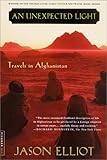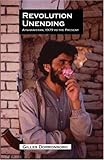“The reality was that [Afghanistan] was viewed as an unwanted headache and one which seemed increasingly impossible to solve. This much is made clear from official government documents from the period, which reflect the sense of defeatism and intellectual exhaustion that permeated the highest echelons of the British state. [...] Governments had cast around for a ‘silver bullet’ to solve the crisis, oscillating between markedly divergent positions. [...] thinking on [Afghanistan] now appeared more rudderless than ever.
[...] a policy vacuum allowed the notion of ‘talking to terrorists’ to once more re-enter British calculations.”
I've doctored the above passage a little, but it's certainly an interesting parallel for the present day discussion. The passage is, in fact, discussing post-1975 Northern Ireland and the British government's return to a policy of clandestine discussions through intermediaries with figures from within the Provisional IRA.
The book does caution against drawing parallels between different circumstances -- everything is local, after all -- but the fact that even a brief read in the book will remind you of what is happening with international policy towards the Taliban at the moment is an indicator that there are at least lessons to be learnt here: ending political stalemate in the greater Kandahar area at the moment should be the single priority of any efforts to find 'a solution', but doing so from a point of strategic bankruptcy will inevitably be to the detriment of everyone's long-term future.
As such, the book "Talking to Terrorists: Making Peace in Northern Ireland and the Basque Country (Crises in World Politics)" (John Bew, Martyn Frampton, Inigo Gurruchaga) is an absolute must-read for policy-makers who see a future (or an end-game) in the possibility of some sort of negotiated settlement with the Taliban.





